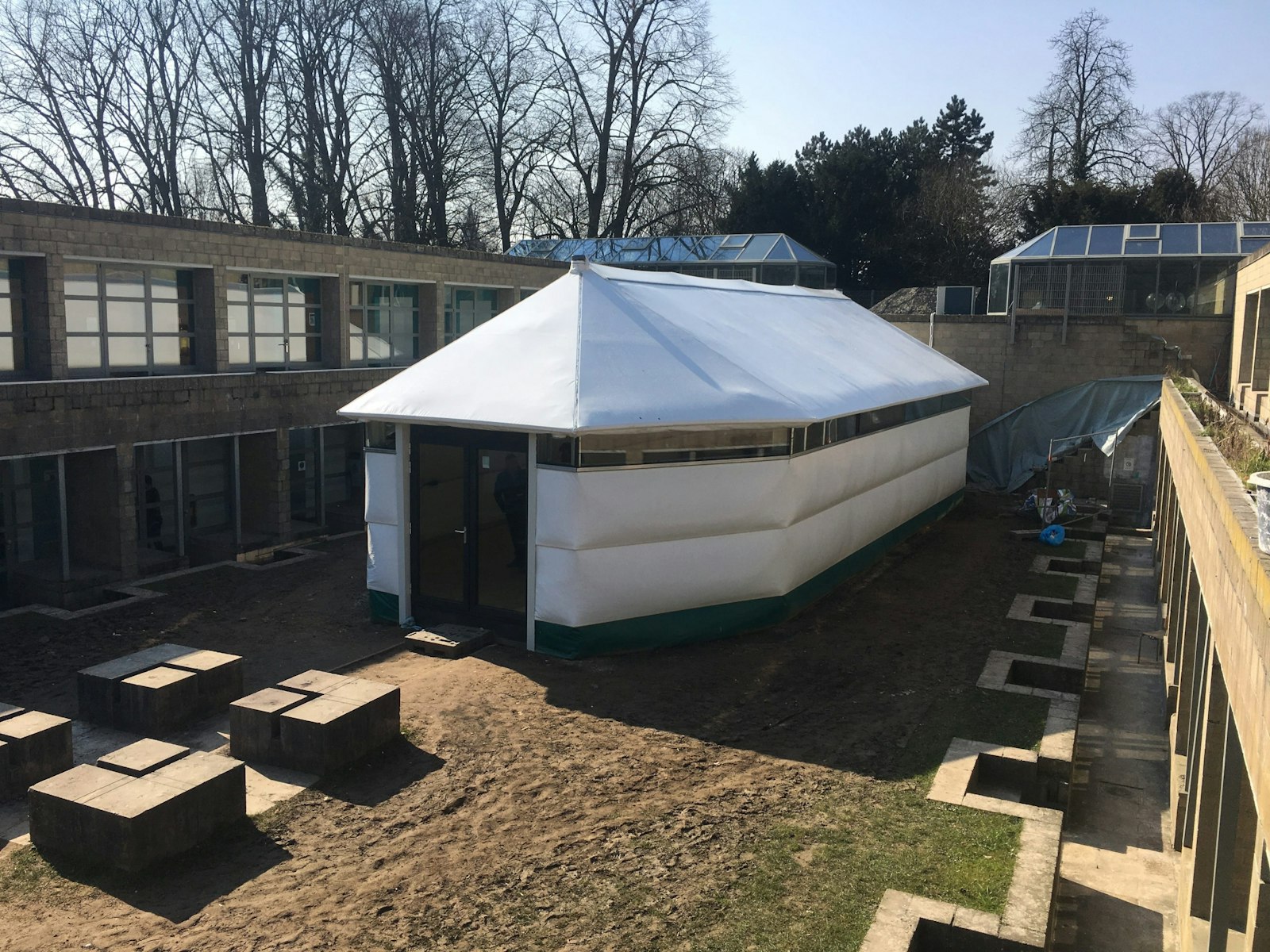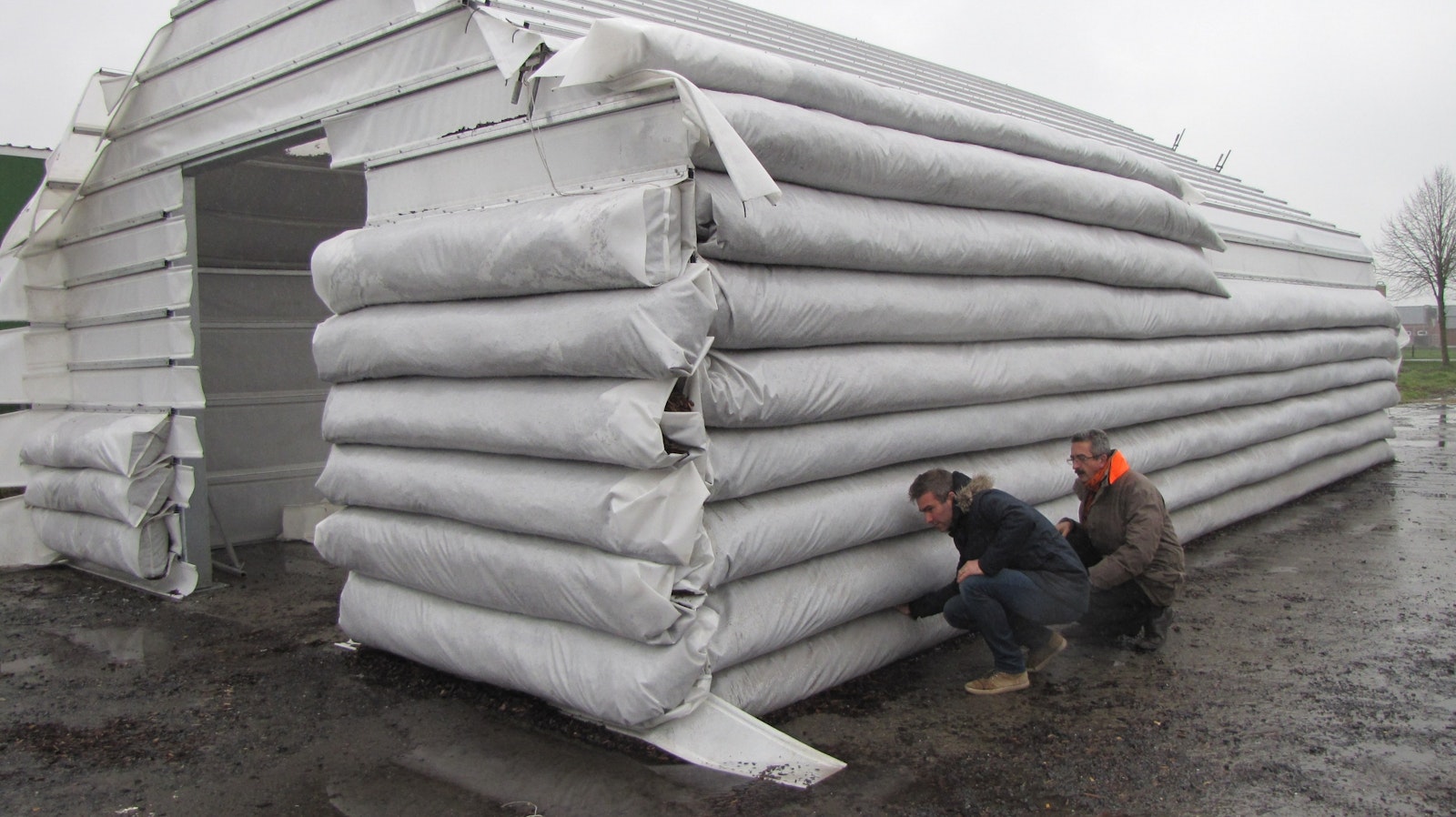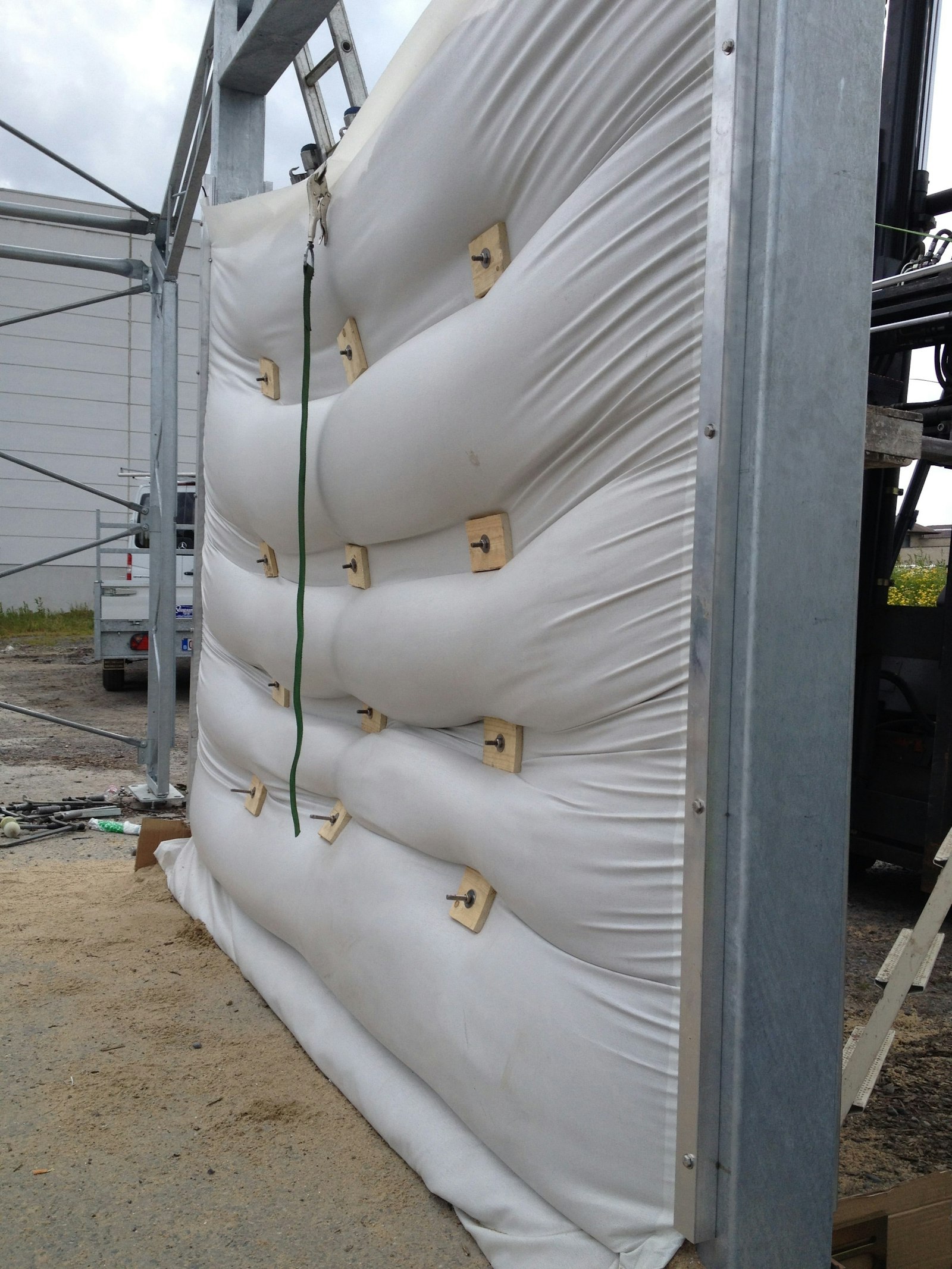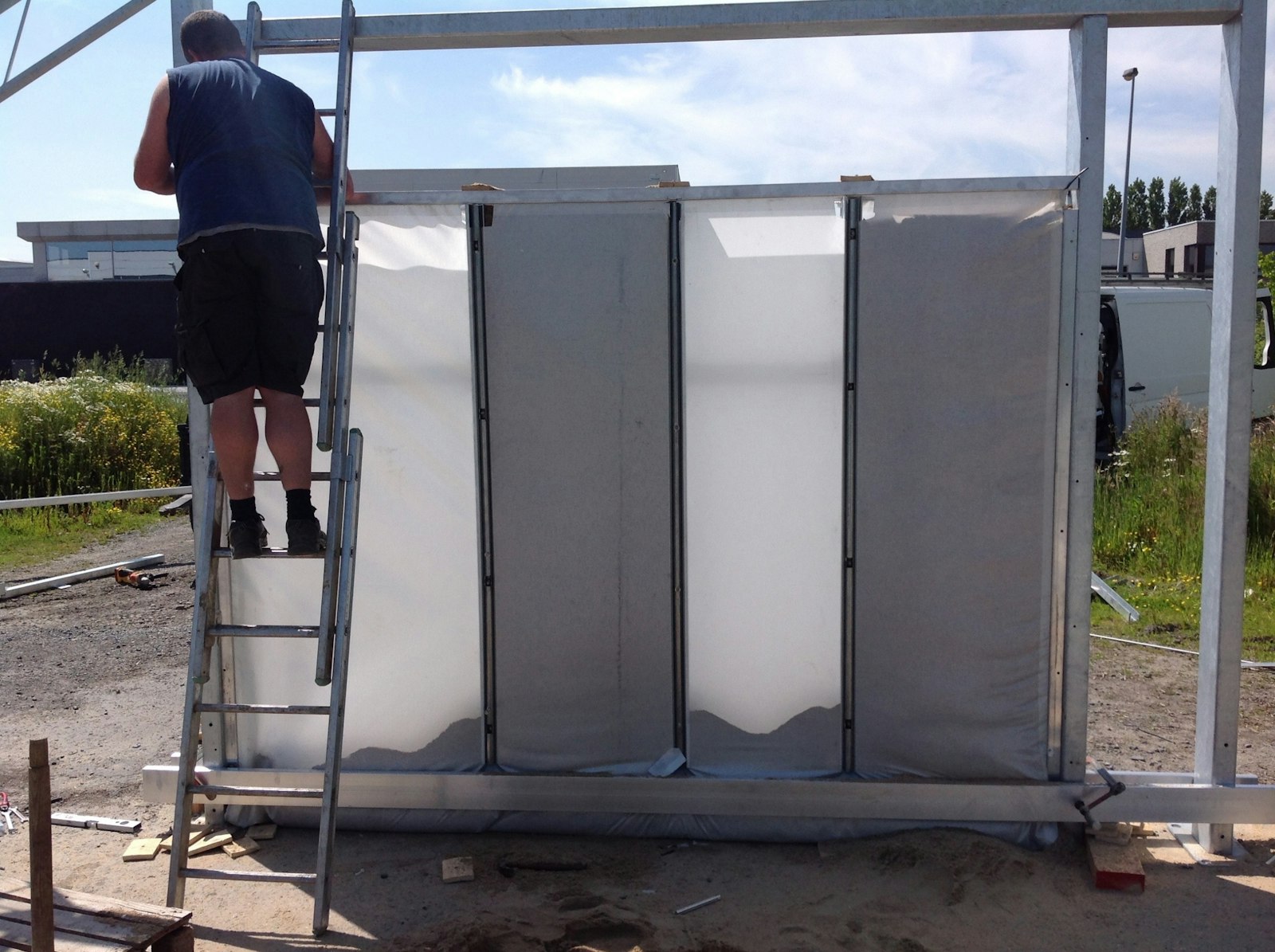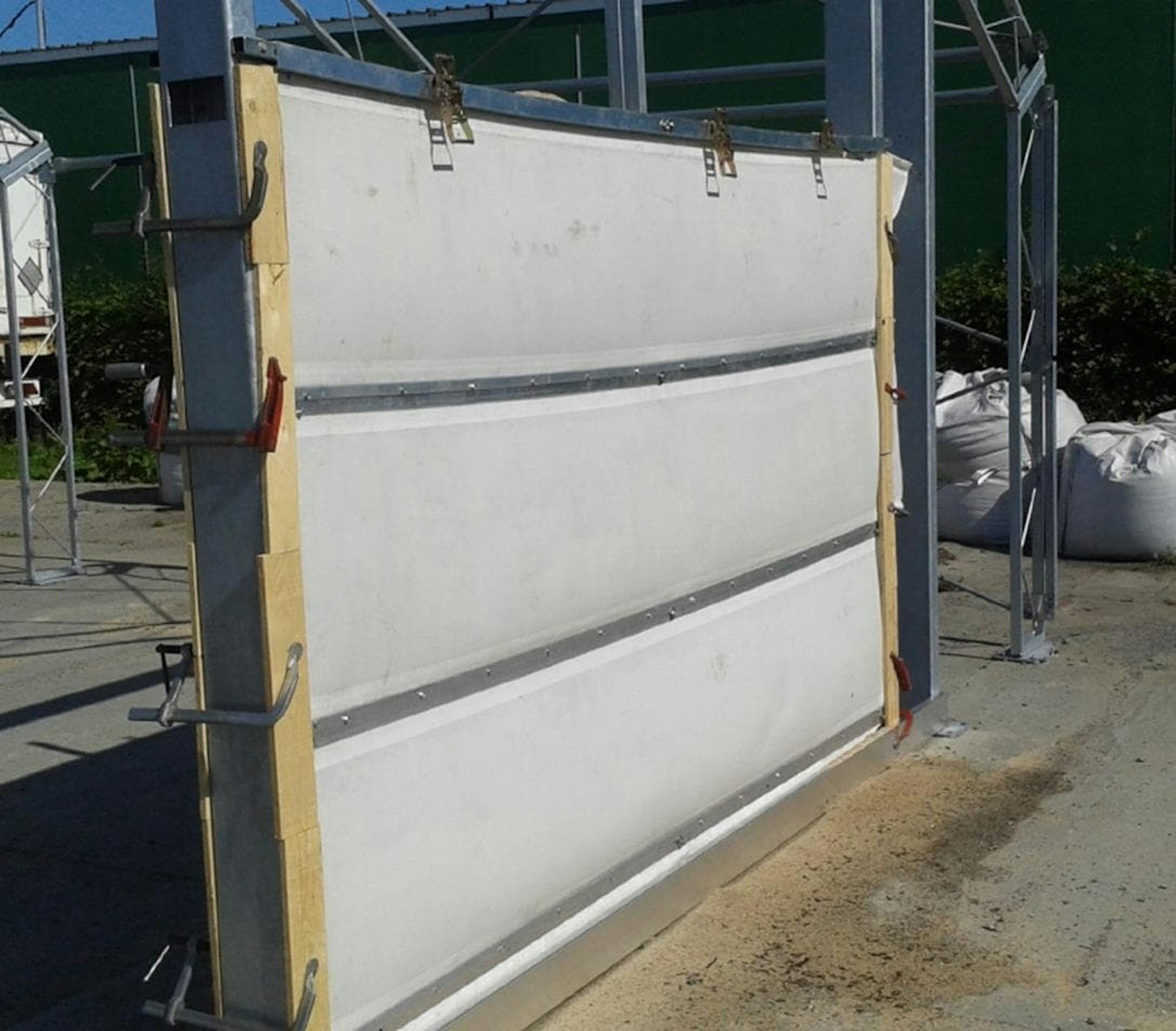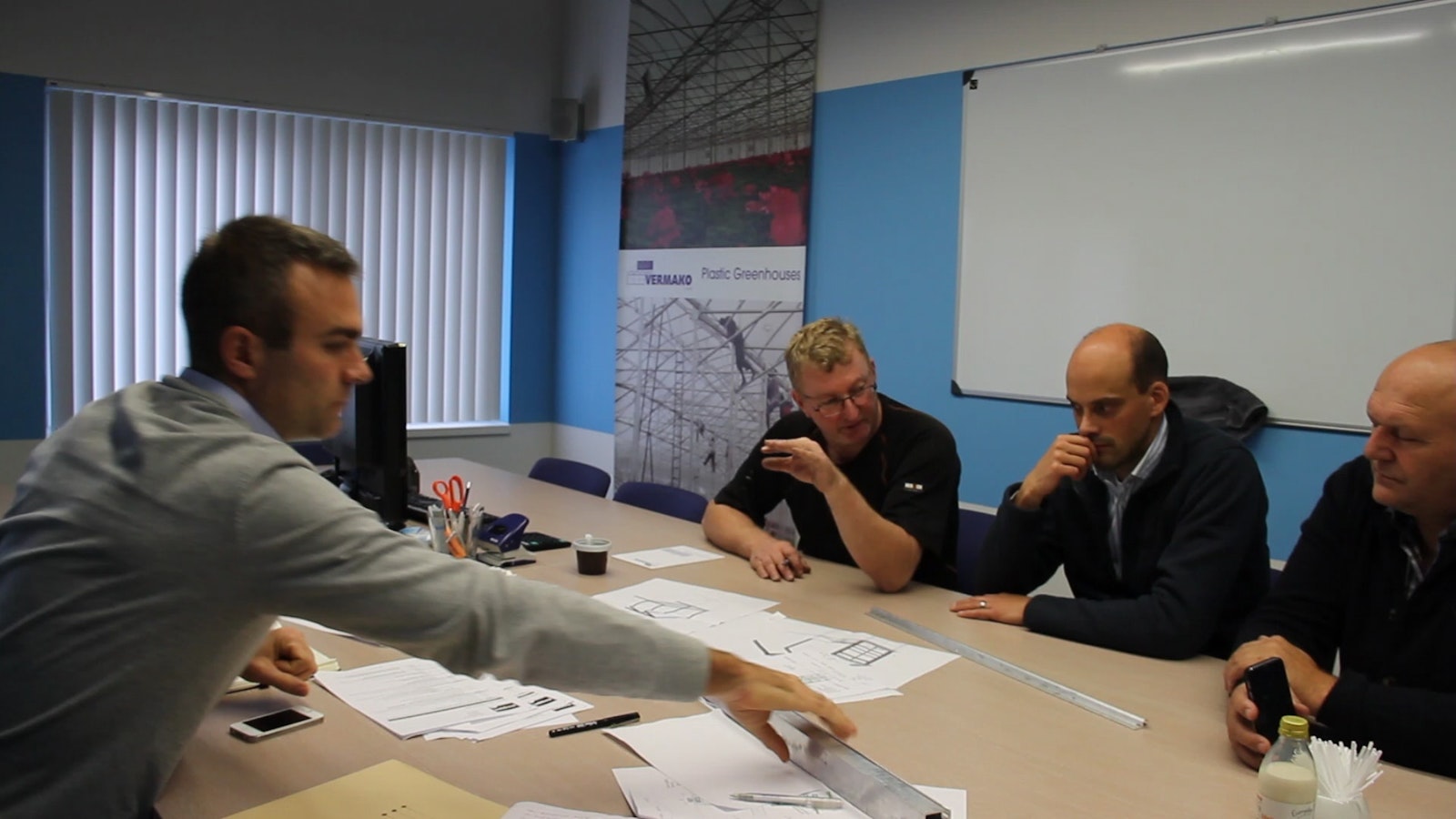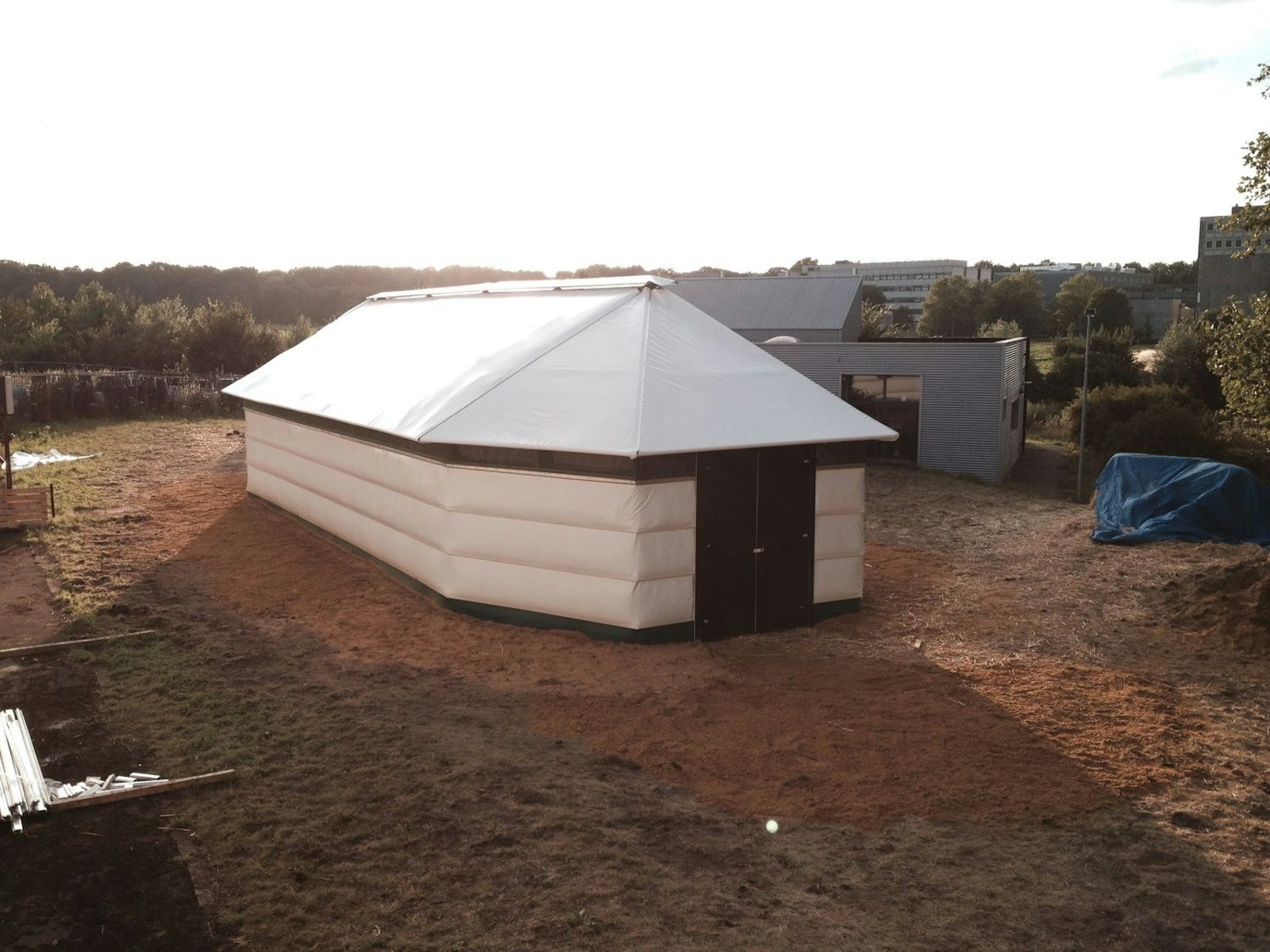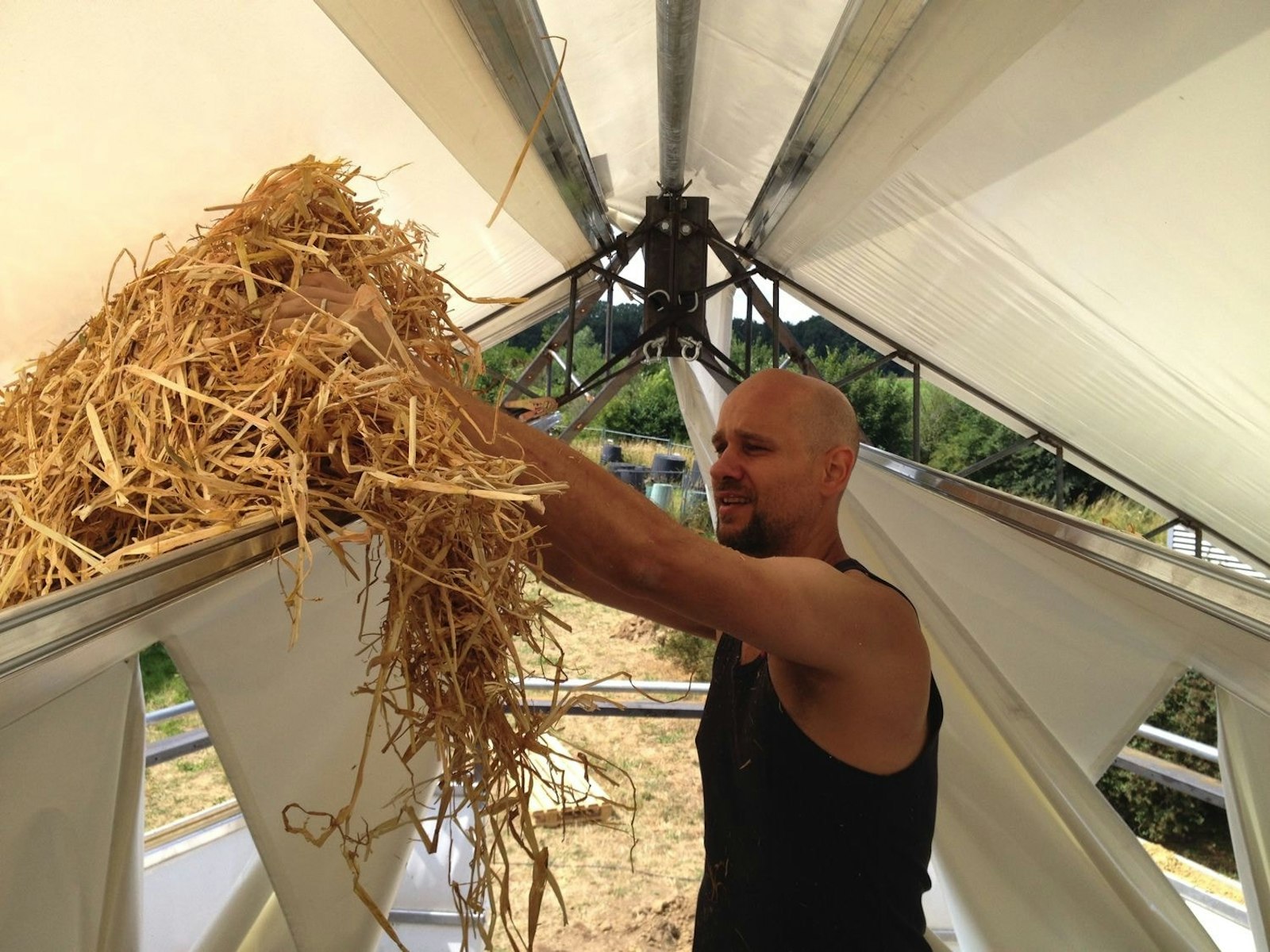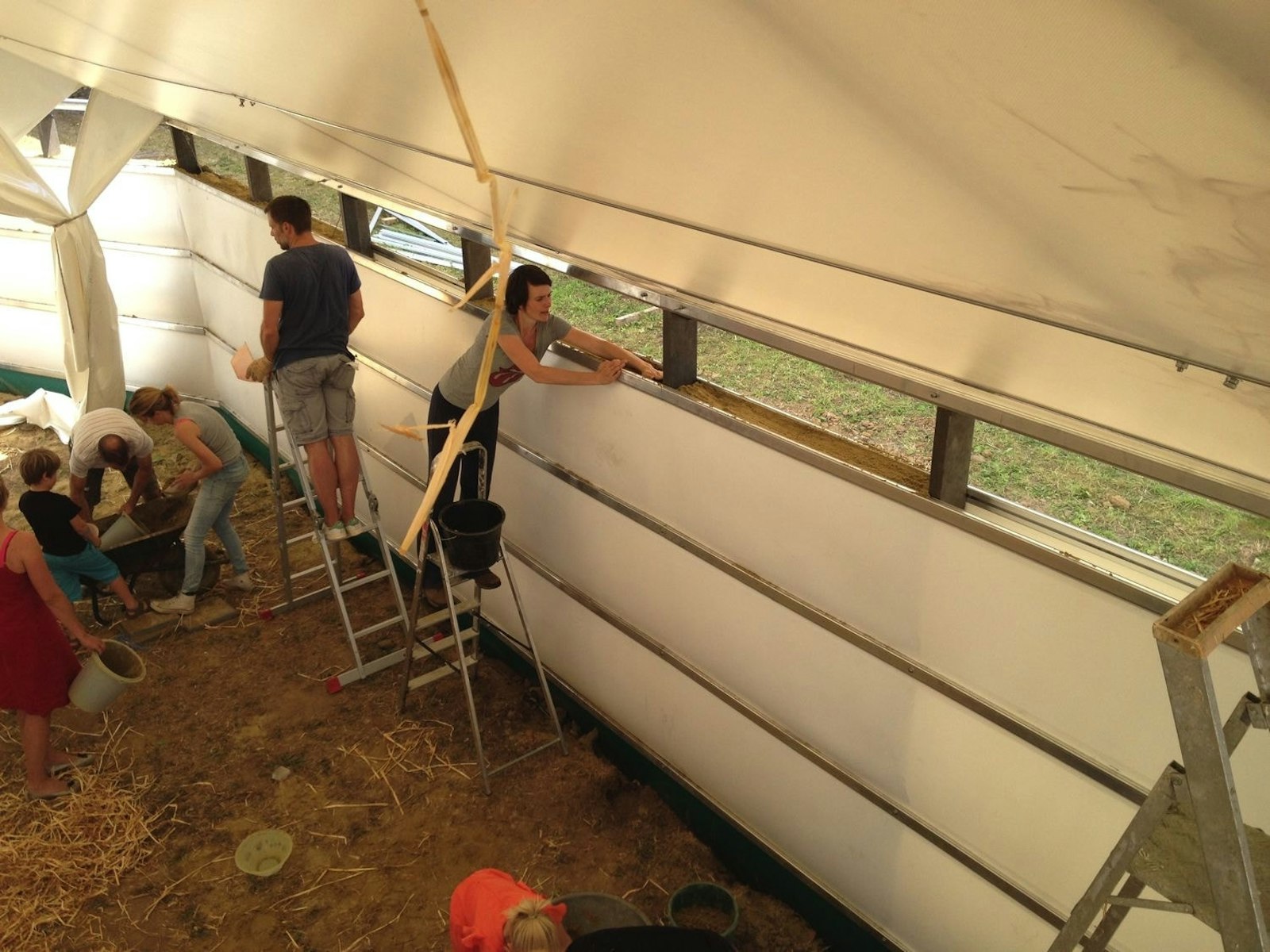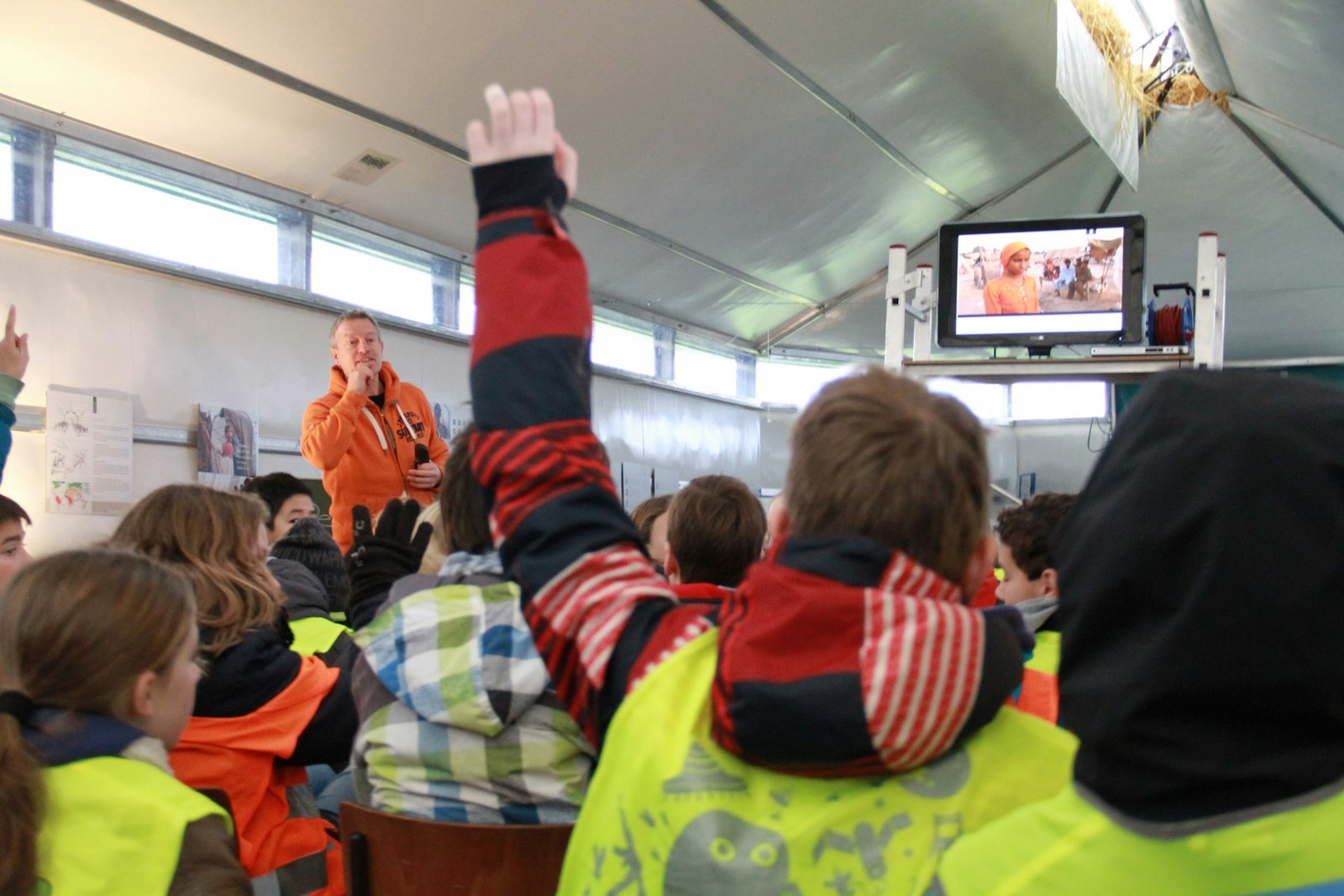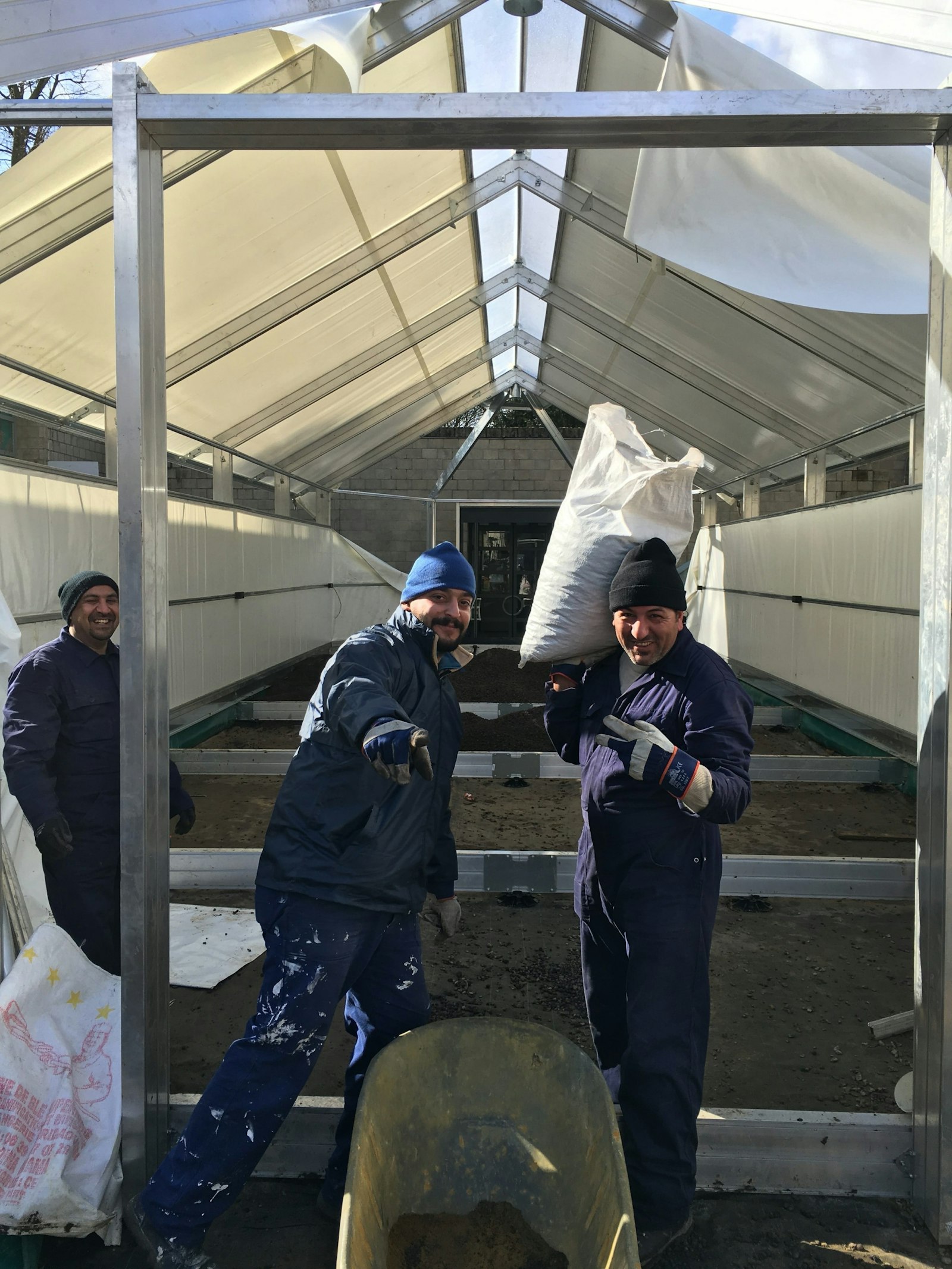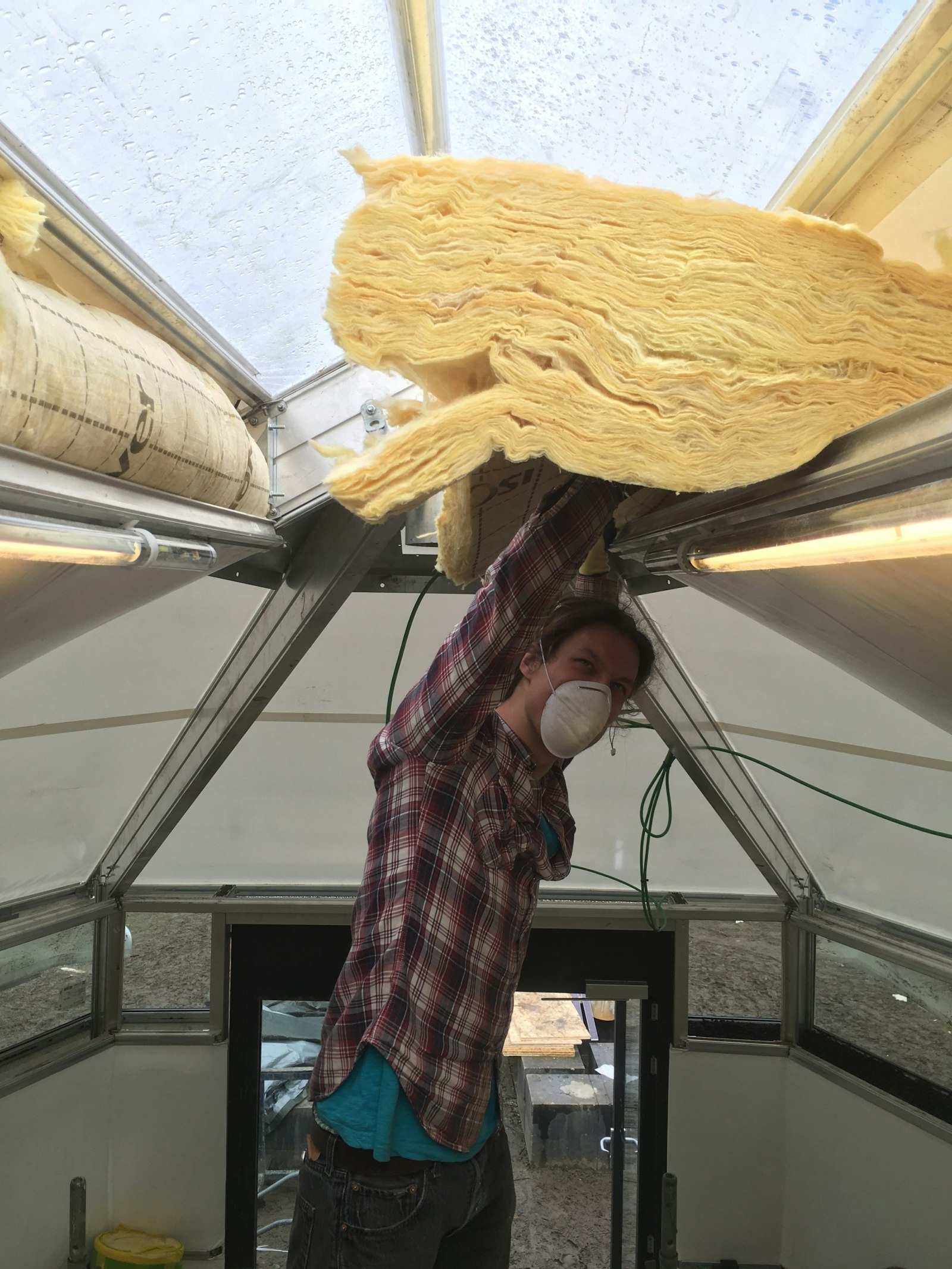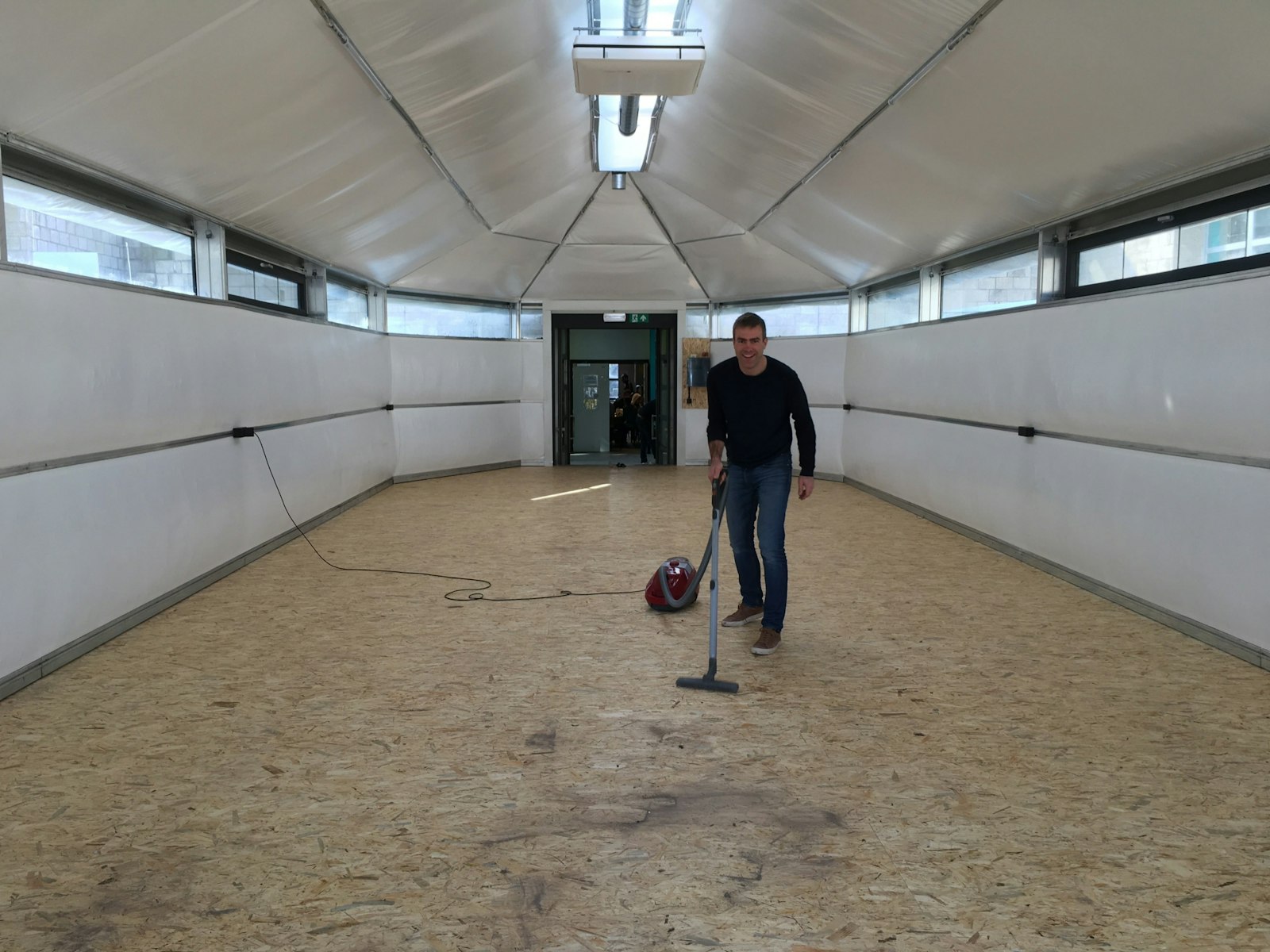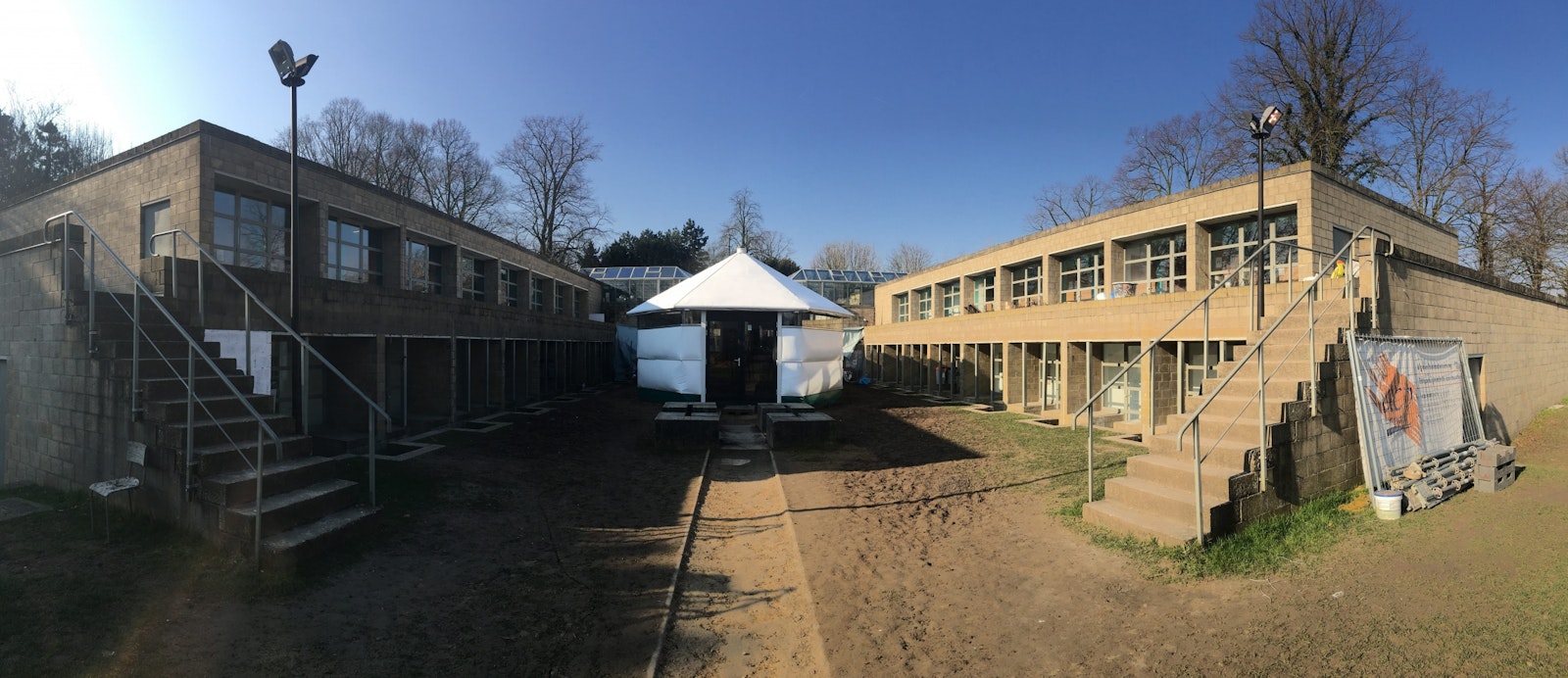de Velde
The Maggie Shelter
Some 60 million people worldwide are refugees and figures show that such individuals spend an average of 12 years in refugee camps.
Good healthcare and access to education are priority fundamental rights for them, and they are frequently the only way in which they are able to continue to see some future for themselves in what are often hopeless situations. High-quality, safe and durable structures are needed in which to be able to provide these services. In view of these social needs and once the technical shortcomings of current solutions had been identified, development of new solutions began in 2014.
The recent sharp rise in refugee numbers has given the entire process momentum. There have been various pilot phases, including a specific one for Fedasil as an extension to its existing reception centre for refugee children in Steenokkerzeel. The move resulted in an immediate improvement in their quality of life. The fourth and final version was unveiled in June 2016. The Maggie Shelter was a temporary, fast-to-erect structure but one which offered all the benefits of a permanent building (robust, safe, insulated, sustainable, long lifespan, etc.). The structure has a double wall comprising aluminium and tarpaulin which can be filled in completely with whatever material is available locally, such as sand and insulation.
The Maggie Shelter meets the 30 core criteria required to be able to offer Life Quality within the structure.
Aside from the context of humanitarian aid, there are potential applications for the shelter in other sectors, too, in which temporary, fast-to erect yet environmentally-friendly solutions are required for capacity building. DMOA has set up a broader platform, the Maggie Program, which is designed to identify social needs and then, via a consortium of engineers and architects (e.g. DMOA), academic institutions (e.g. KUL and CENTEXBEL), manufacturers (e.g. VERMAKO and VERVAEKE) and the authorities (Fedasil, IWT, FIT), try to come up with solutions for areas in which they are most urgently needed. A form of public-private partnership as the key to innovation.

